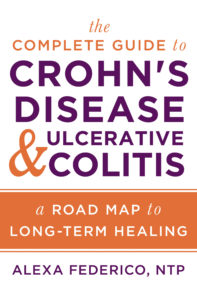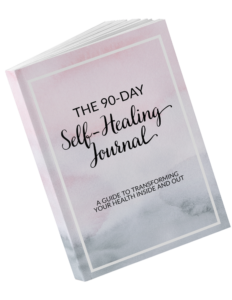This post contains affiliate links in which I earn money for sales made through them. This goes to the costs of running a blog so I greatly appreciate any and all support!
So you have just been diagnosed with Crohn’s disease or ulcerative colitis. Do you feel alone? Scared? Concerned? Sad? Depressed? Angry? Lost? Relieved?
I’m pretty sure I felt all these. All at once. Then separately, over and over. Until eventually, it sinks in that life is going to be different and you start to accept this in pieces.
I want need you to know that no matter what emotions you are feeling, it will be okay.
It will be okay.
You will adjust to your new normal and I promise you will find your stride! In this post I will guide you through some basic initial steps after your diagnosis. Of course, if you are looking for my detailed, comprehensive perspective based on my experiences, I recommend getting my book on Amazon.
If you want to talk about the biggest struggles in your health right now, I would love to chat with you and share how I help people in your situation. Schedule your call here.
Start Forming Your Support Team
Diagnosis – Check.
Next on the list? Form your team. Anyone who is going to be in your life is part of the team. This includes:
- Spouses/significant others
- Parents, siblings, relatives
- Friends
- Co-worker friends
- Friends from church or other community groups, like a gym
- Your gastroenterologist
- Any additional practitioners you may choose to add on including: nutritionist, acupuncturist, masseuse, therapist, coaches, etc.
At this point, you likely have a GI doctor. If you don’t see eye-to-eye with you him or her, it’s okay to search for a new one. This person is someone you should feel comfortable asking questions to and bringing up ideas or concerns with.
Educate
Slowly, or as you see fit, educate the people around you unfamiliar with IBD. A common scenario I see with people of any autoimmune issue is getting frustrated with others who do not understand what they are going through.
Autoimmune illnesses are extremely unique and it’s unfair to get frustrated with friends or family for not understanding or underestimating what we go through. Whether you sit down and discuss your diagnosis in person or forward articles through email, do your part to educate your supporters who want to understand your diagnosis.
And if you have friends and family who are unsupportive of you, it’s okay to not break your back trying to prove anything to them or make them a priority in your life.
Start Healing Your Gut
Under the supervision of your practitioners, start repairing the intestinal wall and environment.
Supplements
Taking a daily probiotic (good bacteria) helps keep the numbers of beneficial bacteria in balance with the nasty ones.
Collagen, a protein we make in our bodies, has the power to heal the gut lining and seal a leaky gut. I use Further Food grass-fed collagen and add a couple of scoops to my drinks or food that I cook throughout the day. You can get a discount off your order by using the code “GIRLINHEALING.”
Additionally, if you are working with someone who has knowledge of herbal treatments and their interactions with any medications you’re on, these herbs have been proven effective for Crohn’s disease. One of my favorite herbal supplements is activated charcoal! You can read more about how I use that, here.
Regular Blood Testing
You’ll want to stay on top of vitamin and mineral deficiencies, so the best way to do that is by getting blood tests done (which your doctor will probably request anyway). Quarterly testing is a good idea.
Your body needs to be nourished now more than ever. Food choices need to be intentionally. Prioritize eating enough and getting as many nutrients as possible. You may decide to start with a healing elimination diet, such as AIP (Autoimmune Paleo) or work with a nutritionist. Hey, I know one! 😉
Start Tracking and Testing
A lot of what you figure out is going to be due to your own diligence. There is only so much testing that can be done to figure things out. By listening to your body, you can track symptoms in relation to their time of day, mood changes, stool changes, and food/drinks/supplements.
I highly recommend everyone keep a food journal when they are starting out. I have created a free food journal, included in my resource library. You can grab one and get lifetime access to the resource library as my gift for subscribing to my newsletters!
Having this information documented is helpful to you and your practitioners in monitoring your health over time.
In Summary
Don’t be hard on yourself. This is the time for self-love not self-loathing. Take it one day at a time and have faith!






